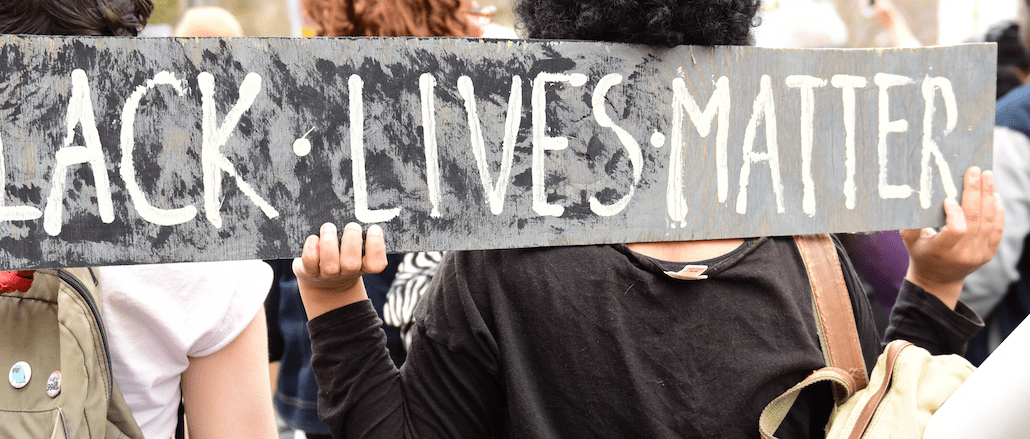Secure your place at the Digiday Media Buying Summit in Nashville, March 2-4

Alysha Light is founder and managing director of Flight PR.
When the Supreme Court granted marriage equality last week, the Internet filled with rainbows and brands rushed to join the #LoveWins campaign for what was likely the most celebratory Gay Pride weekend in history, and for good reason.
Social media platforms didn’t waste a second. Twitter added a rainbow-striped heart to the hashtag #LoveWins while Facebook created a rainbow-hued profile maker. Google displayed a special graphic for searches on “marriage equality,” and brands draped their logos with rainbow flags in proud displays of solidarity with the movement.
Meanwhile, in Charleston, South Carolina, an equally historic moment was playing out with fewer calls to action from corporate America.
I watched in awe as the President of the United States led thousands of mourners, and an audience of millions, in singing “Amazing Grace” — practically a Negro spiritual — while delivering the eulogy for murdered state senator Rev. Clementa Pinckney, who was gunned down alongside eight of his congregants by a white supremacist.
In his eloquent tribute, President Obama talked about the roots of lingering racism in America and why faith, and the church, is so integral to the lives of many African Americans.
The poignant scene, as well as the gruesome massacre that preceded it, took place in the very same state where just a couple months earlier a white police officer was filmed shooting and killing an unarmed black man in the back as he ran away following a traffic stop.
Charleston. Ferguson. Baltimore. Staten Island. Chicago. All across America, countless black lives have been lost, sparking the #BlackLivesMatter movement to broaden conversations around “the ways in which black people are intentionally left powerless at the hands of the state,” according to the website.

So why aren’t brands as willing to support #BlackLivesMatter in the same way they were with #LoveWins?
Companies such as Walmart and Target did take some action by vowing to stop selling Confederate flag merchandise. And in another reaction to public bigotry, NBCUniversal recently took its own stand by firing Donald Trump after he made racist remarks about Mexican immigrants.
While these actions were lauded by the press and across social media, they remain isolated examples unaffiliated with a larger movement. As Starbucks discovered earlier this year, socially conscious campaigns can be tricky waters to navigate, especially when they concern race. The coffee chain was ridiculed by media outlets for attempting to spark a dialogue on race relations with its “Race Together” initiative.
As a communications professional, I know firsthand the impact brands have in amplifying social change, so I can’t help but wonder why there hasn’t been more vocal support of the black community in light of these times.
It seems I’m not alone.
Ok, USA. #LoveWins, I get it, good for you for upholding human rights. Could you now have a similar reaction to #BlackLivesMatter? Plz.
— Maiju (@mayusteapot) June 30, 2015
You can’t be happy about #LoveWins and then completely ignore what’s going on in #BlackLivesMatter because it’s the same fight
— Mel Maxson (@melmaxson) June 28, 2015
It’s a great day to be gay, but still not okay to be black. We’re marching in place. #LoveWins #BlackLivesMatter #MarriageEquaility — reggie mobley (@doctorfate77) June 26, 2015
Dr. Janée N. Burkhalter, associate professor of marketing at Saint Joseph’s University’s Haub School of Business, put it in perspective this way: African Americans have a branding problem.
“One reason marketers might be willing to risk an association with #LoveWins rather than #BlackLivesMatter is the simple fact that people like to talk about love. It’s less scary than talking about death or what it’s like to walk around and be afraid that your life is potentially at risk.”
“There’s been an erasure of black achievements and contributions to American culture beyond entertainment,” Burkhalter continued. “People don’t know that African Americans are doctors, PhDs, scientists, inventors and engineers. If they don’t know that we help, or perceive us to make no contributions to society, then why should we matter?”
The racist backlash that arose on YouTube following Cheerios’ “Just Checking” ad, which featured a mixed-race family, is representative of how people in America still struggle with the topic of race and the place that African Americans have in society.
Following #LoveWins, Darnell Moore, senior editor of Mic, wrote: “I refuse to take pride in a ‘movement’ singularly invested in gay liberation while black and brown folk continue to die at the hands of the state and white vigilantes. …[Not] while white LGBTQ people refuse to confront the anti-black racism within their liberal communities. Not while marriage equality work can amass more money than programming for trans women of color and LGBTQ youth. Not while undocumented LGBTQ people continue to be detained and abused by the state. Not while I must daily argue for the mattering of black lives.”
At its core, #LoveWins celebrates the triumph of acceptance over intolerance. It’s a beautiful demonstration of our potential for progress when we collectively stand against any form of divisiveness. Similarly, #BlackLivesMatter deserves our support because we need to change how we talk about race in this country. Lives are depending on it.
If there were ever a time for brands to join that discussion, it’s now.
Image courtesy of a katz / Shutterstock.com
More in Marketing

Thrive Market’s Amina Pasha believes brands that focus on trust will win in an AI-first world
Amina Pasha, CMO at Thrive Market, believes building trust can help brands differentiate themselves.

Despite flight to fame, celeb talent isn’t as sure a bet as CMOs think
Brands are leaning more heavily on celebrity talent in advertising. Marketers see guaranteed wins in working with big names, but there are hidden risks.

With AI backlash building, marketers reconsider their approach
With AI hype giving way to skepticism, advertisers are reassessing how the technology fits into their workflows and brand positioning.





